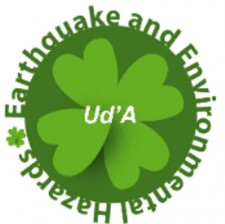EEH PhD

EEH is a PhD course study activated since 2017 at G. d’Annunzio School of Advanced Studies, in the Department of Psychological, Health and Territorial Sciences (DiSPuTer) (Campus Universitario, Via dei Vestini, 31 - 66100 Chieti Scalo, Italy). EEH coordinator is Giusy Lavecchia, full professor of Structural Geology.
EEH is dedicated to high-quality studies and original research on natural and anthropogenic hazards and their consequences. It is aimed to build a multi-task research community concerned, on one side, with monitoring, modelling and assessment of hazards and, on the other, with the investigation of the impact on individuals and society, finalized to the design and implementation of risk mitigation and adaptation strategies. The skills of the EEH teaching board, which span from Earth Sciences and Physics (ERC PE10) to Archaeology (ERC SH6) and Psychology (ERC SH4), make possible a multi-task approach to two high-impact categories of hazard, that concern earthquakes and environmental pollution.
Characterizing EEH research and teaching topics are:
1. Seismotectonics and seismogenesis for seismic hazard assessment (responsible: prof. Giusy Lavecchia)
2. Geoarchaeology and archaeoseismology for cultural heritage risk and for seismic hazard (responsible: prof. Oliva Menozzi)
3. Endogenous and anthropogenic hazards for risk mitigation (responsible: prof. Francesco Stoppa)
4. Psycho-sociological analysis of hazard perception and risk communication (responsible: prof. Maria Cristina Verrocchio).
EHH students will develop and implement their scientific background, but, at the same time, they will acquire basic tools and knowledge on hazard problems approached from different point of views. This strategy is crucial to educate and train a new generation of researchers and technicians able to combine their specific expertise into a common procedure for successful risk management. Such a framing process is urgent in order to increase resilience to earthquakes and environmental hazards and to reduce the impact from natural disasters.
The course is open to candidates with a master degree in structural geology, geophysics, geomorphology, seismology, archaeology, geochemistry, petrography, physics, environmental science, psychology and sociology. Accordingly, candidates will widen their specific competence by working in a team of experts from many different fields.